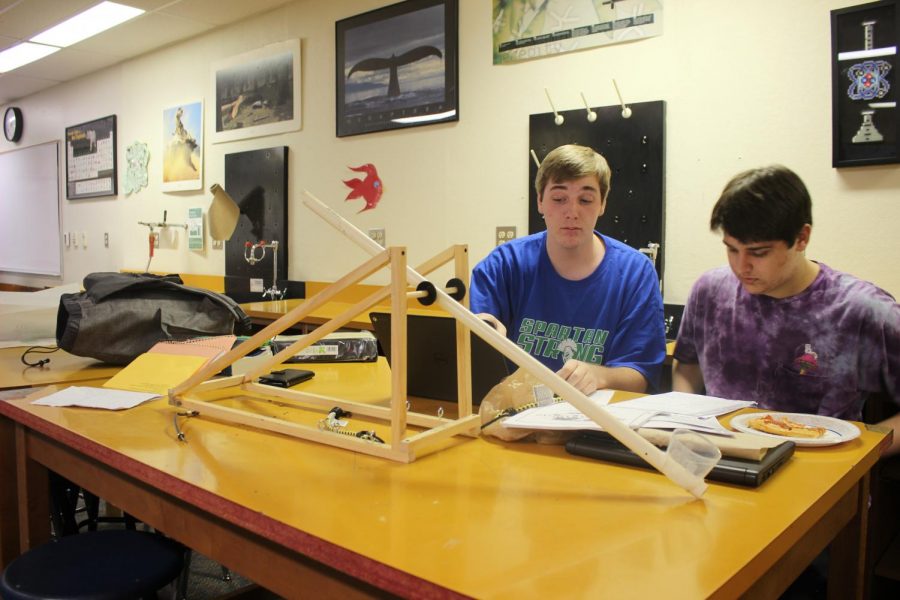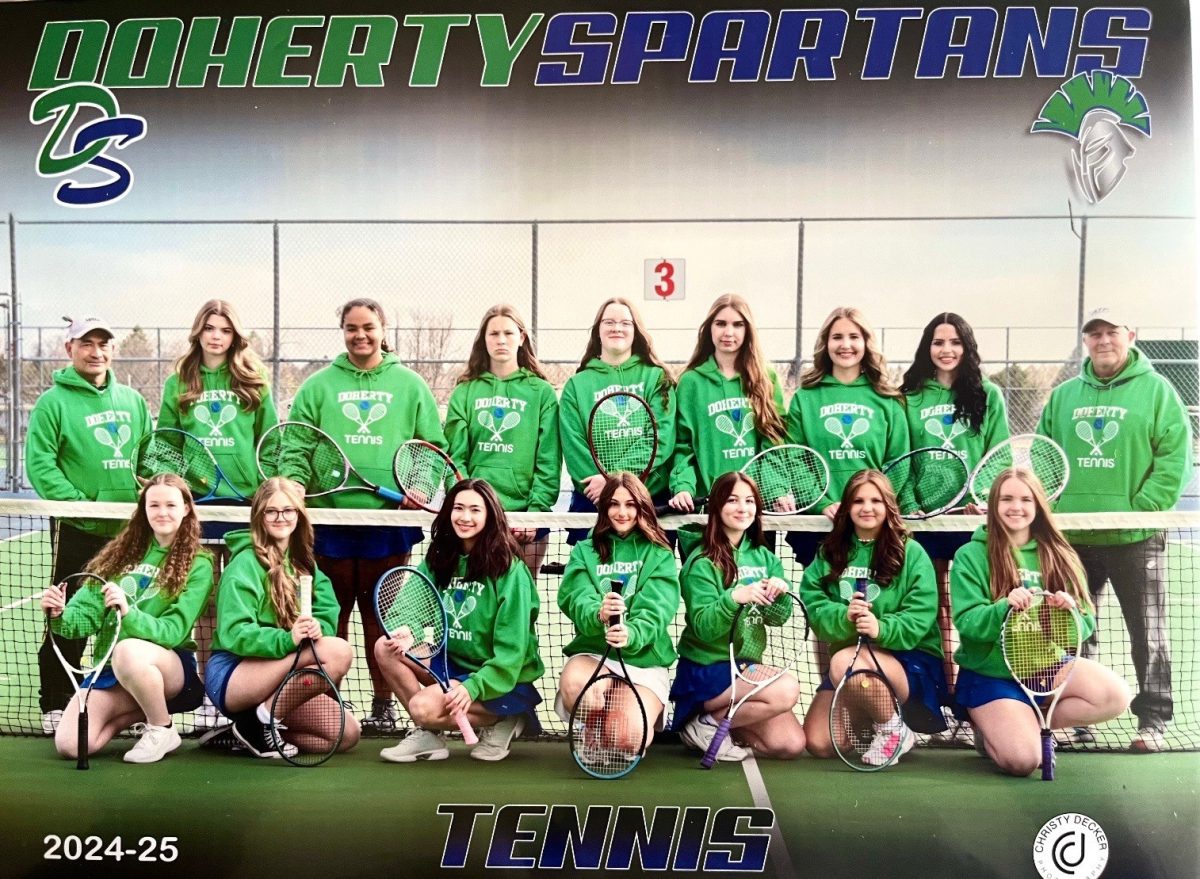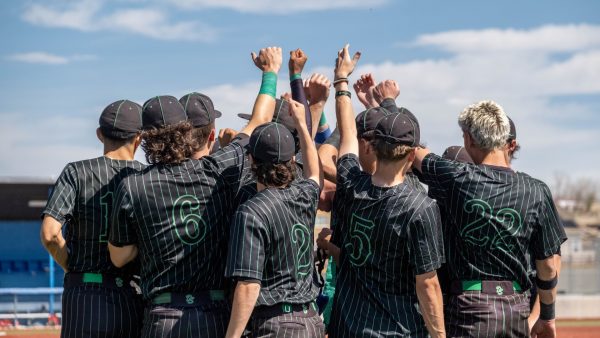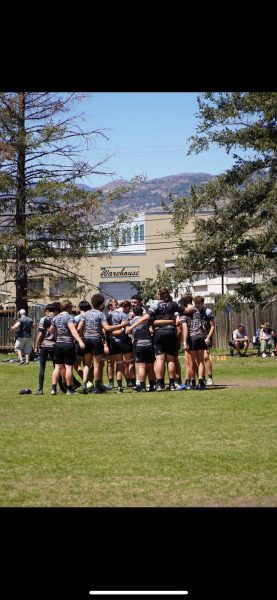Struggling With Your Future? Science Olympiad Is Your Answer!
Jack Bopp and his partner modify their catapult project.
January 24, 2020
If you’re not sure what you want to do when you get older, or you don’t feel like your classes are preparing you for what you want to do, look no further. Science Olympiad is more than meets the eye, with over 25 different events to compete in ranging from designer genes to geologic mapping. Science Olympiad is a self-paced and interest-based group, where you can research and prep to compete in whichever subjects most interest you.
Competitions feature three main categories of competition: build events, lab events, and study events. For build events, you assemble and engineer your own machine or tool to complete a designated task, and bring it on competition day. Lab events provide supplies and tools for you on the competition day to build something or conduct an experiment. For study events, you research a subject over the course of the year, and test your knowledge at the competition day. A complete list of the 2020 Events is listed below.
| Build Events | Lab Events | Study Events |
| Boomilever | Machines | Meteorology |
| Detector Building | Protein Modeling | Ornithology |
| Elastic-Launched Glider | Fossils | |
| Gravity Vehicle | Anatomy and Physiology | |
| Mousetrap Vehicle | Geologic Mapping | |
| Ping Pong Parachute | Astronomy | |
| Mission Possible | Disease Detectives | |
| Wright Stuff | Reach For The Stars | |
| Dynamic Planet | ||
| Read Scholar | ||
| Designer Genes | ||
| Water Quality | ||
| Heredity | ||
| Codebusters | ||
| Code Analysis | ||
| Data Science |
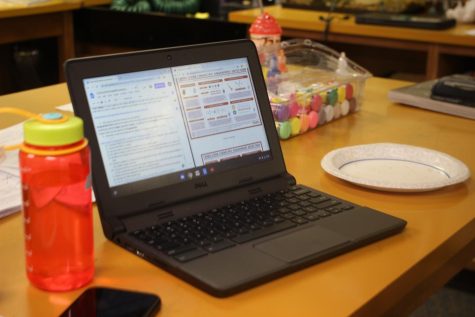
Kathryn Casey researches forensic science in preparation for her event.
If you’re not sure what area you want to compete in, Doctor Hebrink, Biology and Anatomy teacher as well as the club sponsor, says, “Last year the kids had time between events, so we sent them to other events and told them to have at it. And they had a lot of fun just trying new things. Last year Jack [Bopp] actually ended up medalling [in a new event].” The 2020 regional competition takes place on February 29th at Colorado State University in Pueblo.
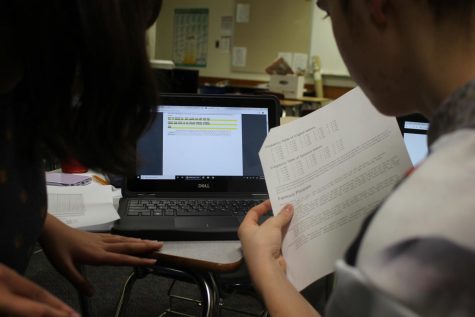
Eric White and Emily Taylor problem solve their Code Busters practice.
Science Olympiad member Kathryn Casey, says, “I decided to do a forensics event, [and] I like forensics and learning about crime scenes in a forensic way, [but] I don’t like being like, ‘Ooh this person got murdered because of this,’ it’s like, ‘Ooh I love the background and behind the scenes.’” In the forensic science event, participants are given a crime scene to analyze and the tools to do so, and they use the research they conducted throughout the year to find out what happened. “I really want to do microbiology, which is like when you look at bacteria or like blood cells under a microscope. And I find those things really cool because you don’t see it with your own eyes until you can find a lens to see those things with. Forensics kinda leads towards [that area], it’s not exactly there but they don’t have an event called ‘Microbiology’ yet,” says Casey.
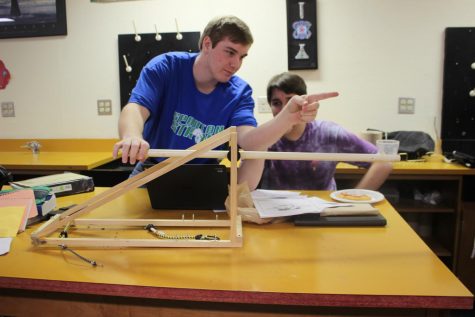
Jack Bopp and his partner modify their project catapult.
Science Olympiad is a low stress environment, where you have the resources to explore the things that interest you on your own time. “I think it’s a fun thing. It’s not very stressful and that’s what I like about it; it isn’t like you have to get this done or like your science classes where it’s an assignment. But you can go [at] your own pace with your research, and that’s what I like a lot. And I don’t get stressed out about this stuff unless if I’m super interested in it, [in which case] I’m like, ‘Oh my gosh, I have to get this done!’” explained Casey.
For those interested, anytime is a good time to join. They meet about twice a month in Mrs. Robinette’s room. Casey says, “For other people, I’d say do it because it’s so fun and it’s not stressful at all. If you love science, come by!”

